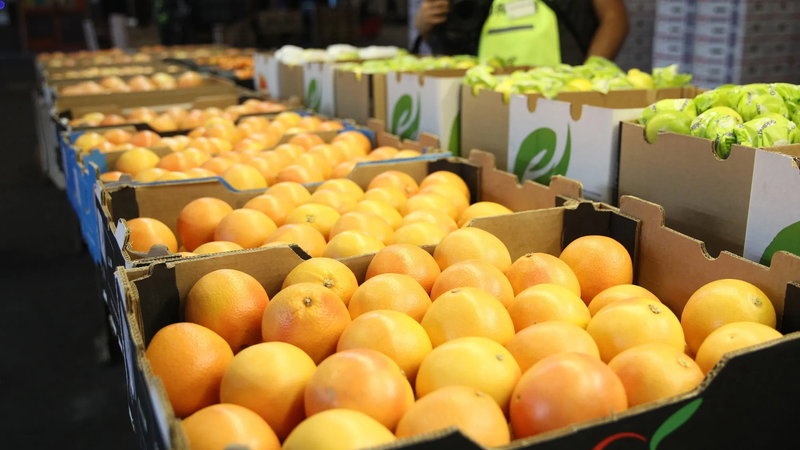
The African Growth and Opportunity Act (AGOA) has been a cornerstone of trade between the United States and Sub-Saharan Africa since its implementation in 2000. It has facilitated access to the U.S. market for many African agricultural products, boosting the sector and contributing significantly to economic growth across the continent. However, with the potential of an AGOA exit looming, there are growing concerns about how African countries, particularly in the agricultural sector, will manage the loss of preferential trade benefits. Despite this uncertainty, African farmers, businesses, and governments are demonstrating resilience, innovation, and adaptability that can not only cushion the blow of a potential AGOA exit but may even allow them to thrive in a changing global trade environment.
AGOA provides duty-free access to the U.S. market for thousands of products, including agricultural goods like fruits, vegetables, coffee, and cocoa. For many African countries, this preferential access has been a critical driver of growth in the agricultural sector. As global demand for African agricultural products increases, AGOA has served as a bridge for African producers to reach high-value markets in the U.S. In fact, AGOA has led to a significant increase in exports, providing farmers with new opportunities, higher incomes, and access to advanced agricultural technologies and methods.
The prospect of losing AGOA’s preferential treatment presents a significant challenge for African agricultural exports. Without access to the U.S. market under AGOA, African countries would face higher tariffs and greater competition from other suppliers. The immediate impact could lead to a reduction in exports to the U.S., creating a ripple effect on agricultural production, income levels, and employment in rural areas.
For instance, countries like Kenya, South Africa, and Ethiopia, which rely heavily on AGOA for exporting products like cut flowers, avocados, and citrus fruits, would experience a decline in revenue. This could result in job losses for millions of farmers and workers involved in the agricultural value chain, from cultivation to processing and logistics.
Despite the challenges that an AGOA exit could bring, the African agricultural sector has several pathways to resilience. Here are some ways the sector can adapt and thrive:
Diversifying Export Markets
One of the most effective strategies to mitigate the impact of an AGOA exit is to focus on diversifying export markets. The global agricultural market is vast, with opportunities in Europe, Asia, the Middle East, and even within the African continent itself. African countries can explore new trading agreements and regional trade partnerships to replace lost exports to the U.S.
For instance, the African Continental Free Trade Area (AfCFTA), which aims to create a single market for goods and services across Africa, could be a powerful tool for African nations to bolster intra-Africa trade. The AfCFTA is expected to increase demand for African agricultural products within the continent, creating new markets for farmers.
Enhancing Local Processing and Value Addition
Another strategy is to focus on adding value to agricultural products before export. By processing raw agricultural products locally, countries can capture more value in the supply chain and create jobs. For example, processing raw coffee beans into coffee powder or turning fruits into jams and juices can help increase revenues and create a buffer against market fluctuations caused by the loss of AGOA benefits.
Local processing also reduces dependence on international logistics and can lead to greater self-sufficiency in food production. It can stimulate rural economies and provide employment opportunities in agribusiness, thereby contributing to long-term sustainable development.
Leveraging Technology and Innovation
Agricultural technology is rapidly evolving, and innovation in farming practices, crop management, and logistics can significantly improve productivity. African farmers can benefit from digital platforms, drone technology, and artificial intelligence to increase yields, reduce costs, and improve the quality of their produce.
Additionally, innovations in climate-resilient agriculture, such as drought-resistant crops or sustainable irrigation methods, will be critical as African nations adapt to changing environmental conditions. By embracing such technologies, farmers can mitigate the risks posed by external factors and remain competitive in global markets.
Strengthening Domestic Agricultural Policies
African governments can also play a key role in strengthening policies that support the agricultural sector. This includes improving access to credit, land reforms, and subsidies for smallholder farmers who make up the majority of the agricultural workforce. Investments in infrastructure, such as rural roads, storage facilities, and cold chain logistics, are also essential to reducing post-harvest losses and ensuring that agricultural products reach markets efficiently.
By prioritizing agriculture in national development plans, African governments can foster an environment that encourages investment, innovation, and growth in the sector.
Building Stronger Global Partnerships
While the potential loss of AGOA’s preferential access to the U.S. market is a significant challenge, it is also an opportunity to build stronger relationships with other international partners. By expanding trade agreements with countries outside the U.S., including China, India, and the European Union, African nations can gain access to alternative markets.
Bilateral trade agreements, regional cooperation, and multilateral trade partnerships could help cushion the impact of losing AGOA benefits. Furthermore, engaging with international organizations like the World Trade Organization (WTO) will allow African countries to advocate for better trade terms and ensure that African agricultural exports remain competitive.
The agricultural sector in Africa faces considerable challenges in light of a potential AGOA exit, but with strategic planning and action, the continent can turn these challenges into opportunities. By diversifying export markets, investing in local processing, leveraging technological innovations, and strengthening domestic agricultural policies, Africa can build a more resilient and self-sustaining agricultural sector. As the global landscape shifts, Africa’s agricultural future remains bright, provided that both the public and private sectors continue to prioritize growth, sustainability, and innovation.

